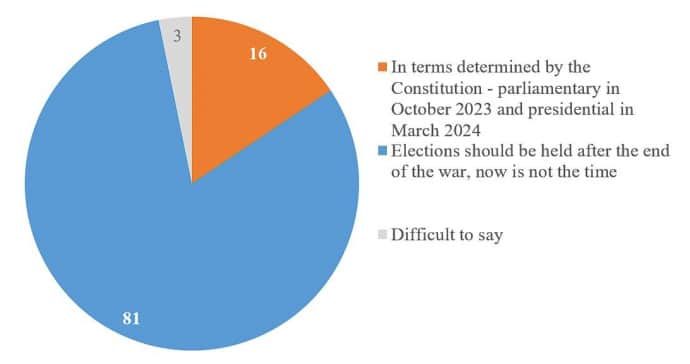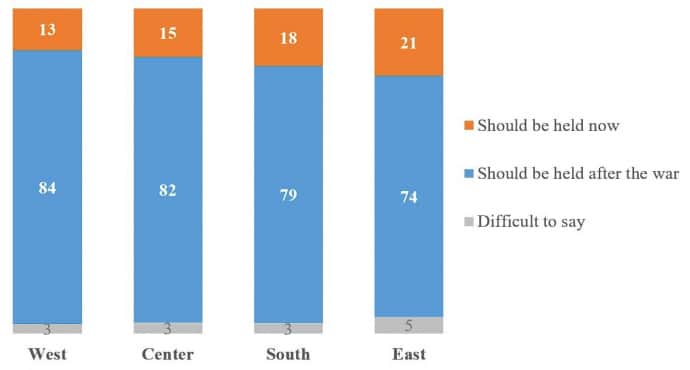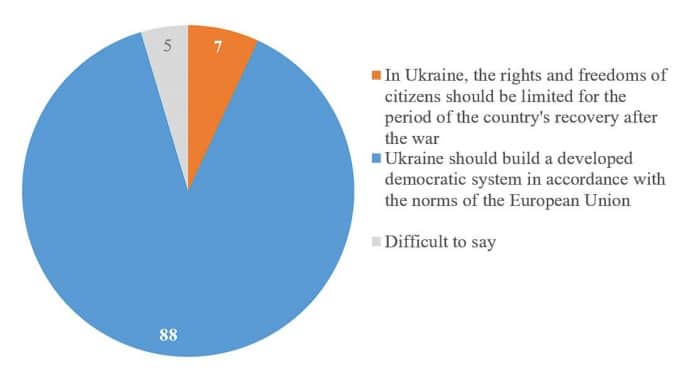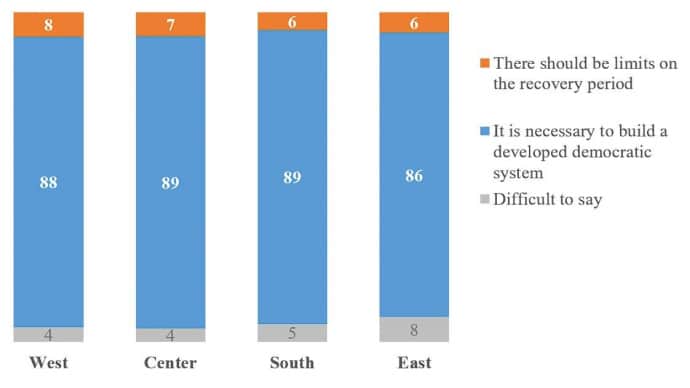Ukrainians convinced that now is not time for elections, poll finds
The majority of Ukrainians believe that national elections should be held after the end of the war, and now is not the time. Source: a survey conducted from 30 September to 13 October by the Kyiv International Institute of Sociology (KIIS) Quote from KIIS: "The results of the KIIS survey as of October 2023 show that 81% of respondents believe that elections should be held after the war and now is not the time.

The majority of Ukrainians believe that national elections should be held after the end of the war, and now is not the time.
Source: a survey conducted from 30 September to 13 October by the Kyiv International Institute of Sociology (KIIS)
Quote from KIIS: "The results of the KIIS survey as of October 2023 show that 81% of respondents believe that elections should be held after the war and now is not the time. 16% believe that elections should be held despite the war."

Details: The sociologists said that most of the population is against holding elections during the war in all regions of Ukraine.

Note: The mandate of the Verkhovna Rada (the parliament) ends this autumn, and the term of office of the President expires in the spring.
Although Ukrainians consider it expedient to postpone elections until after the war, at the same time, 88% insist that a developed democratic system should be built in Ukraine following the norms of the European Union. Only 7% of respondents are in favour of restricting the rights of citizens for the period of reconstruction after the war.

The vast majority of respondents in all regions of Ukraine are against restrictions on the recovery period.

The study was conducted from 30 September to 13 October. 2,007 respondents living in all regions of Ukraine (except Crimea) were interviewed using the telephone interview method based on a random sample of mobile numbers. The survey was conducted with adult (aged 18 and older) citizens of Ukraine who, at the time of the survey, lived on the territory of Ukraine (within the boundaries controlled by the Ukrainian authorities until 24 February 2022). Residents of temporarily occupied territories could not be included in the sample, and the survey was not conducted with citizens abroad.
Formally, under normal circumstances, the statistical error of such a sample (with a probability of 0.95 and taking into account the design effect of 1.1) did not exceed 2.4% for indicators close to 50%, 2.1% for indicators close to 25%, 1.5% for indicators close to 10%, and 1.1% for indicators close to 5%.
A certain systematic deviation is added in addition to the specified formal error under war conditions. However, sociologists are convinced that the results obtained still retain a high level of representativeness and allow for a fairly reliable analysis of public sentiment.
Support UP or become our patron!



